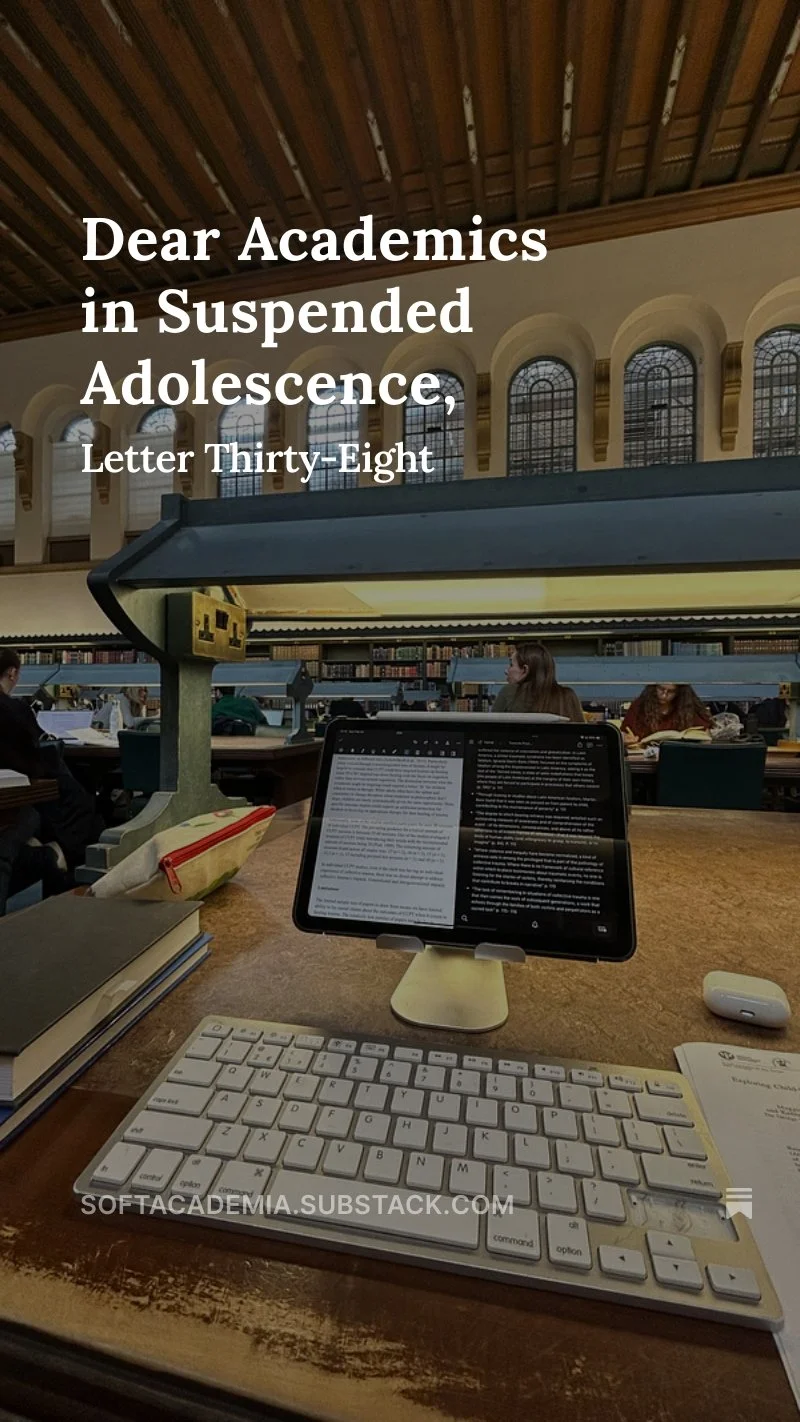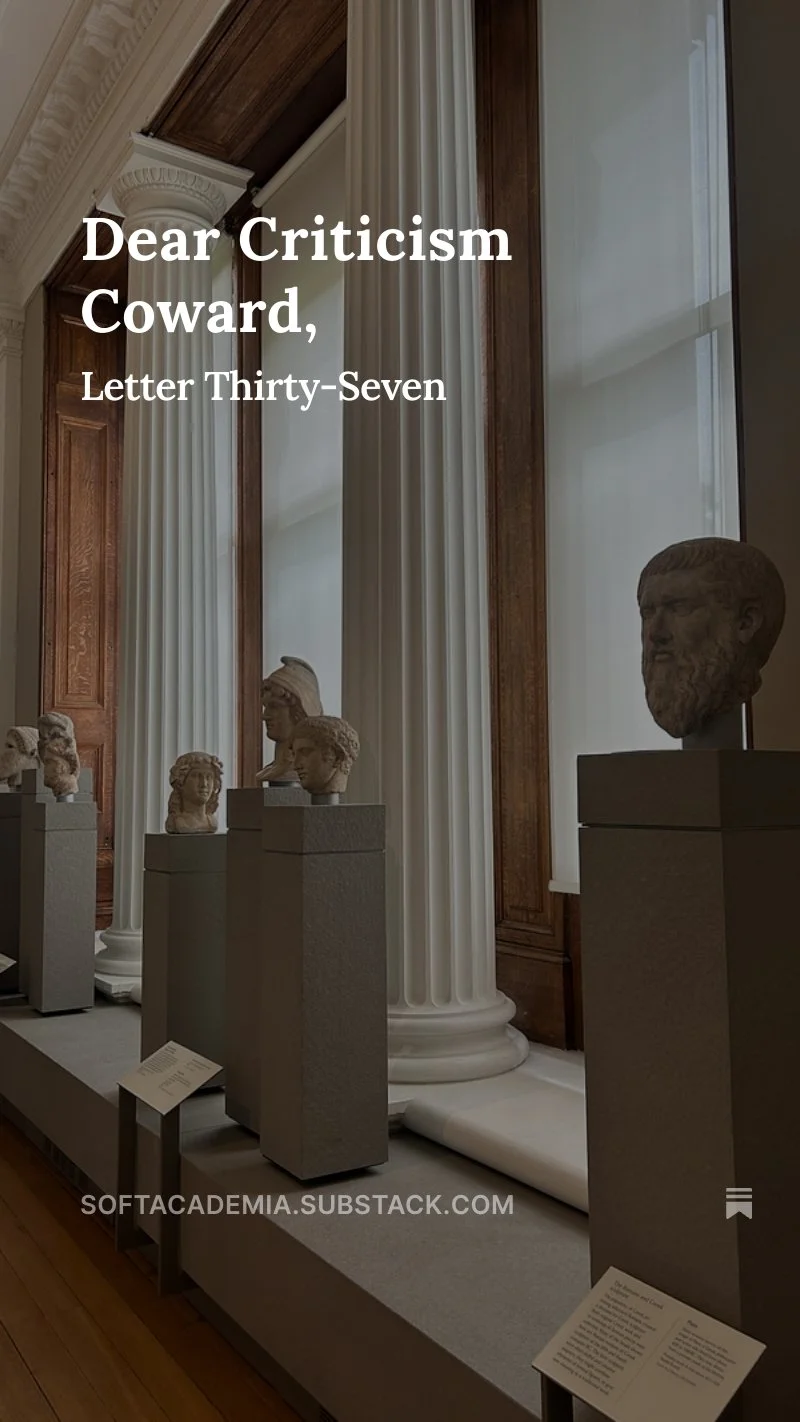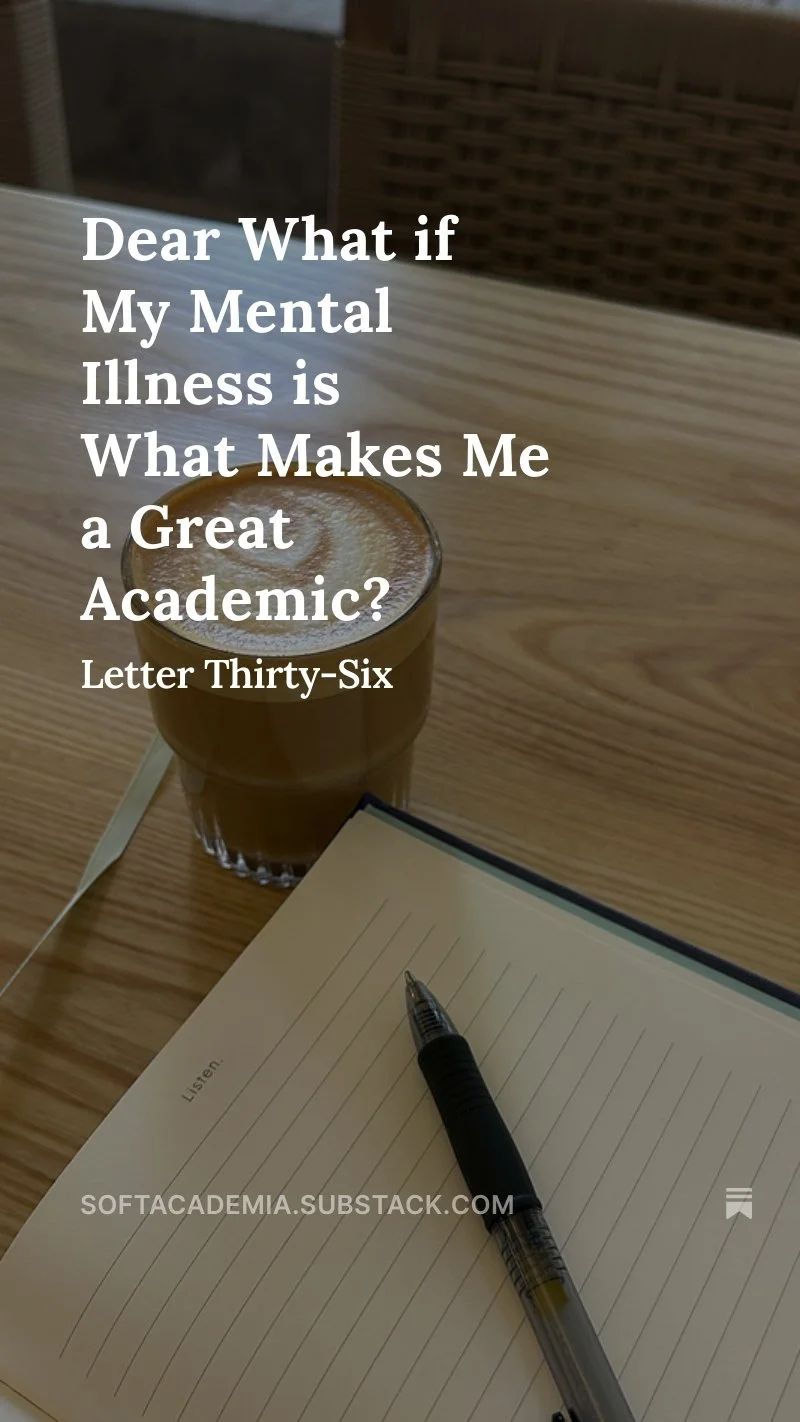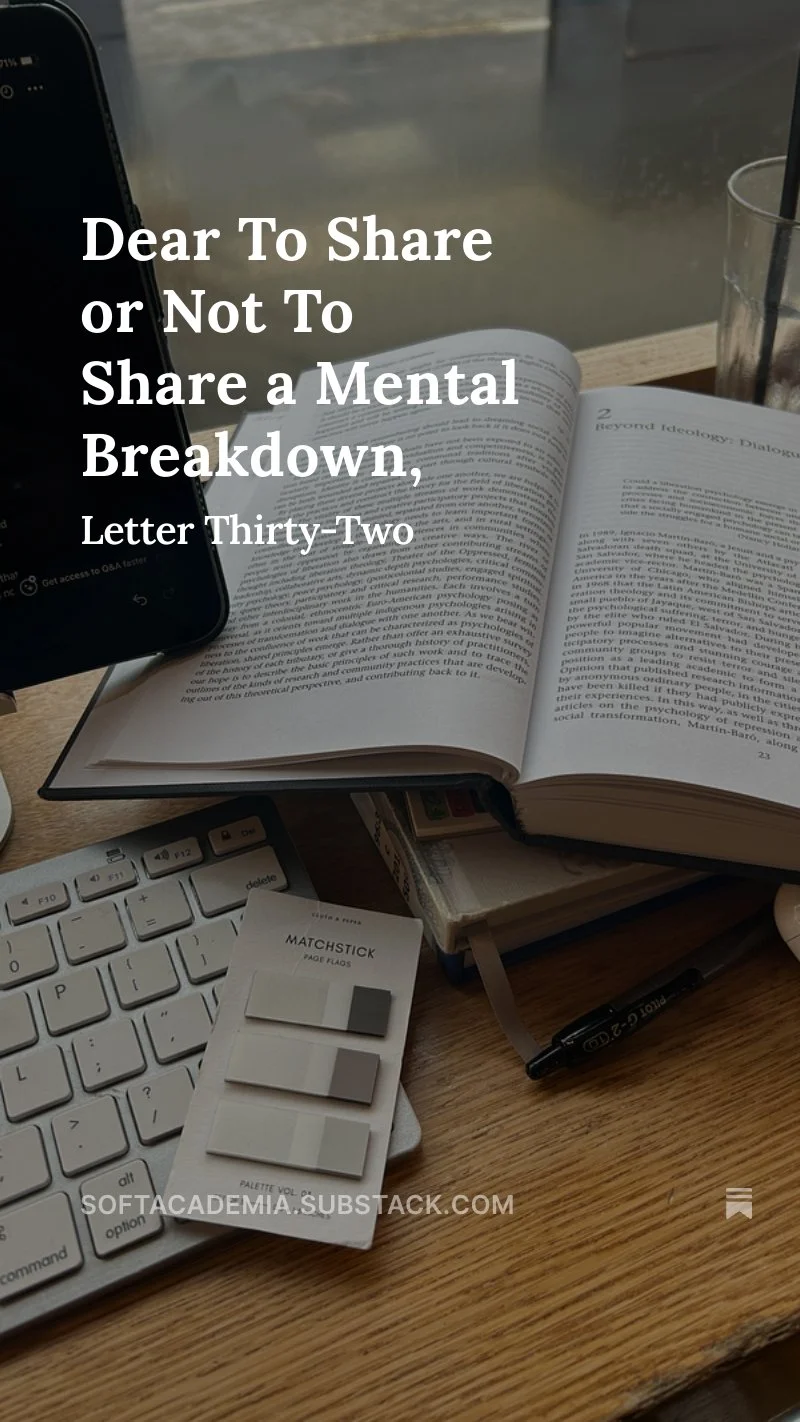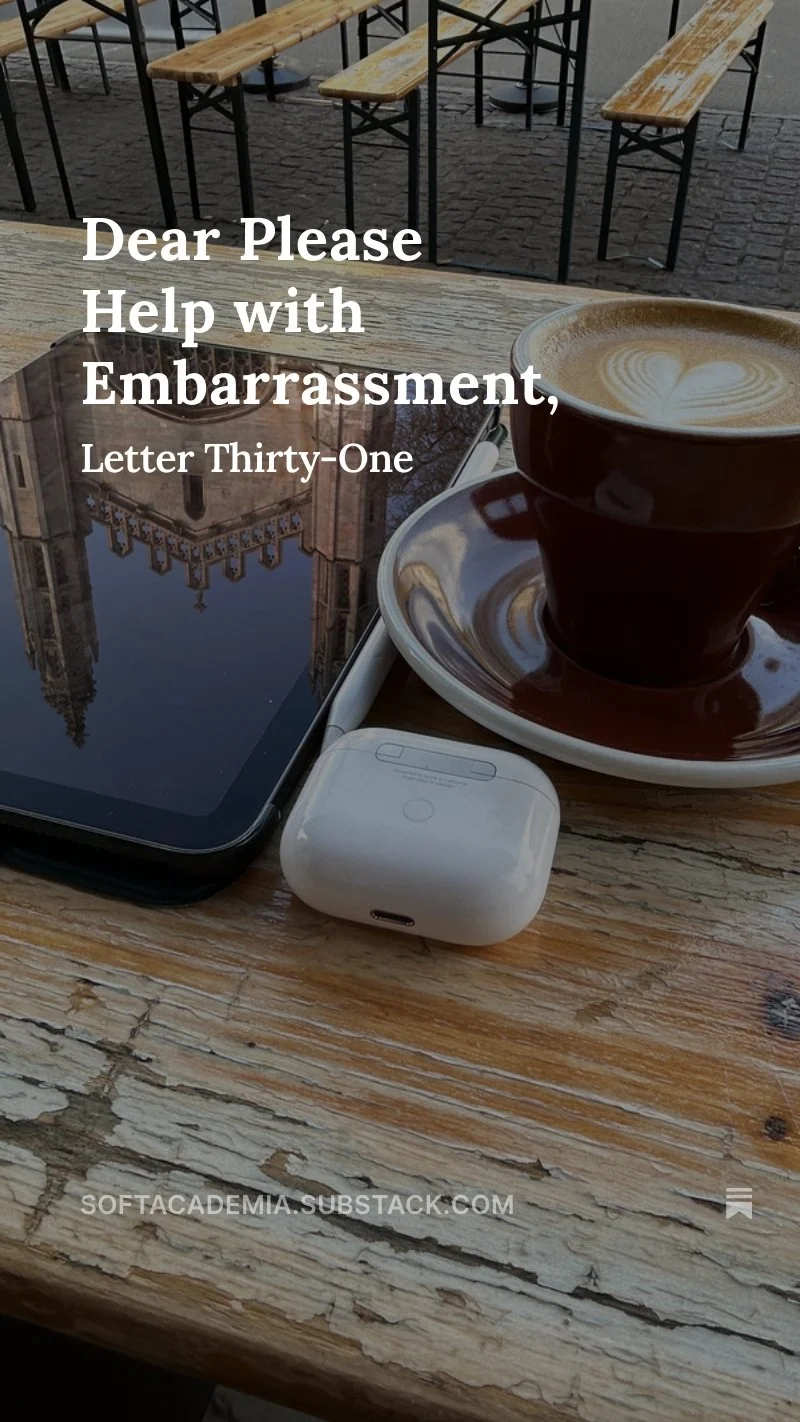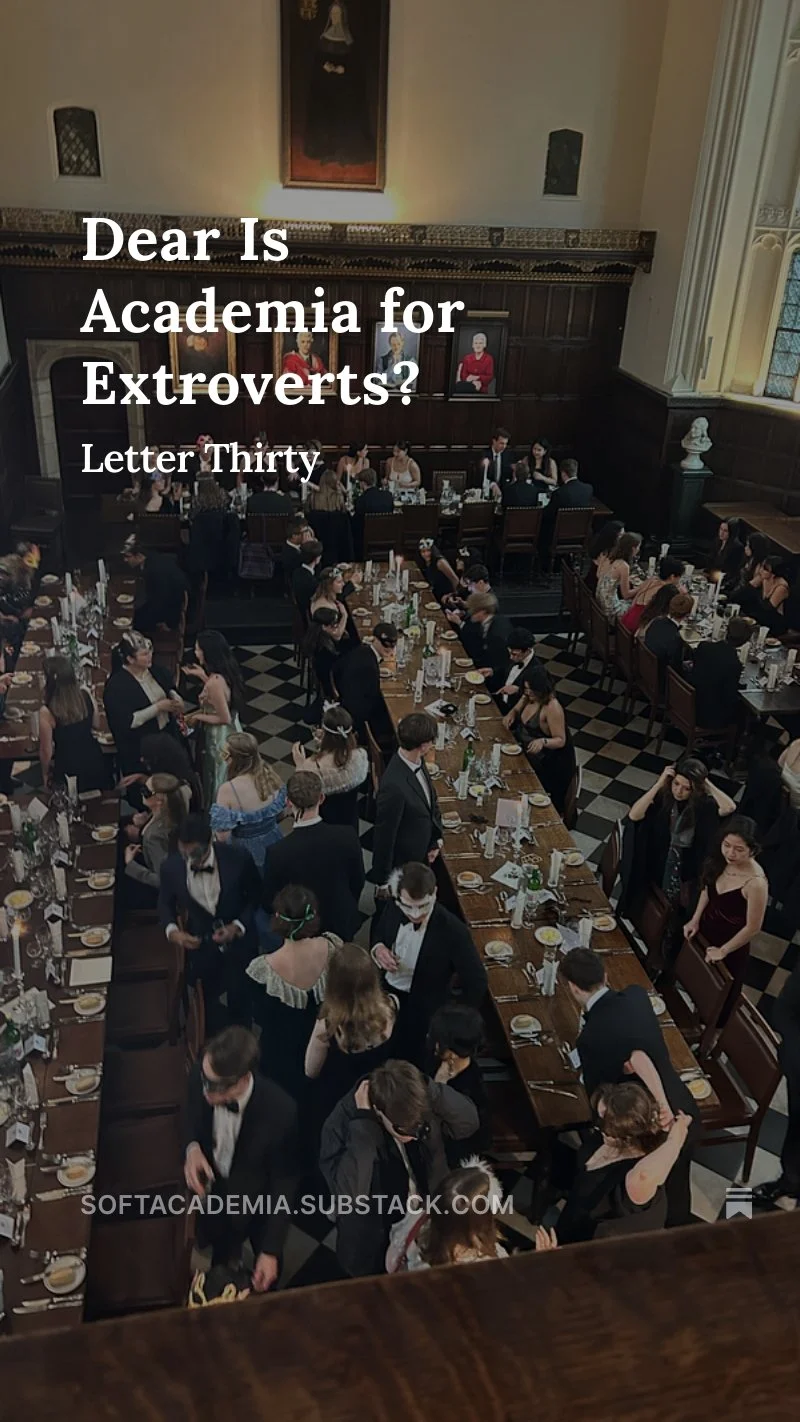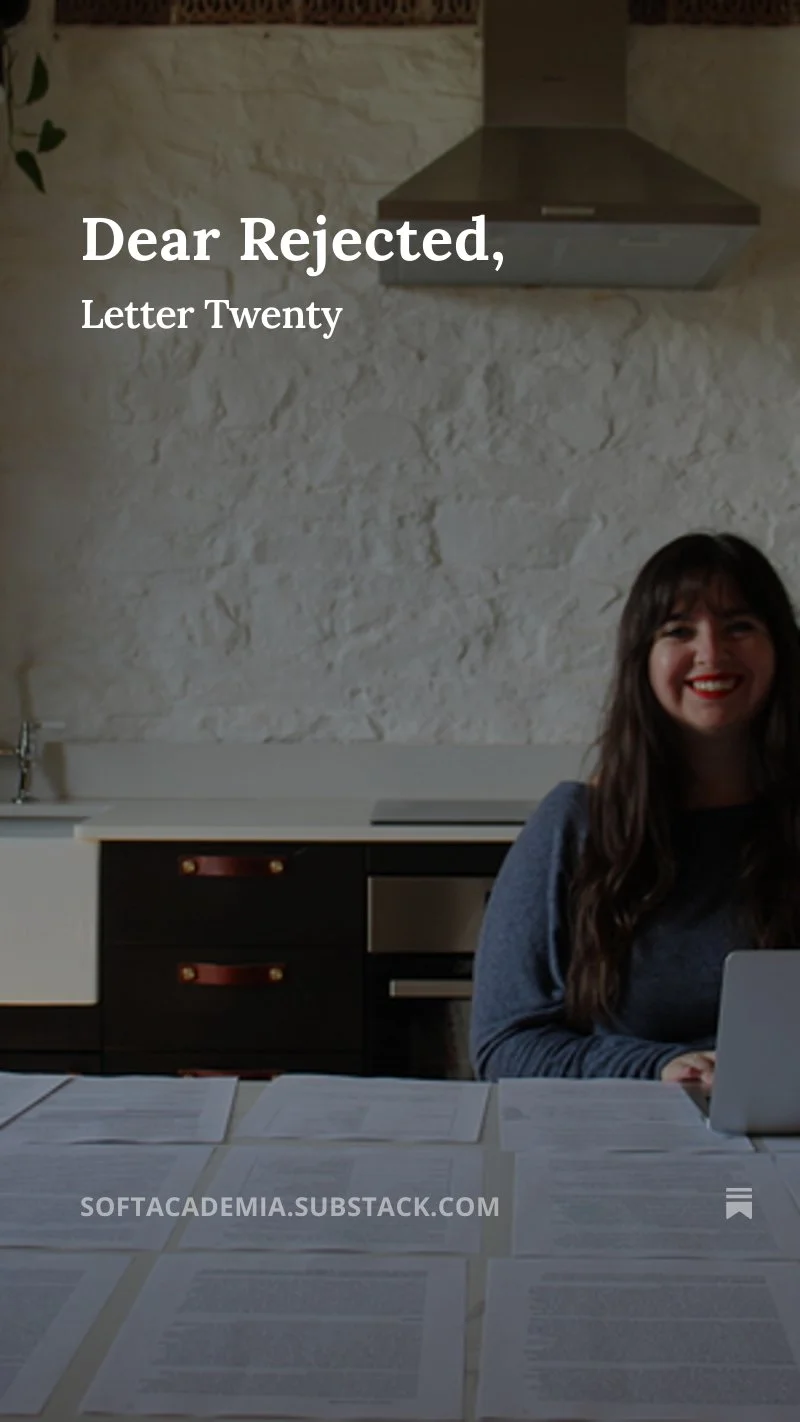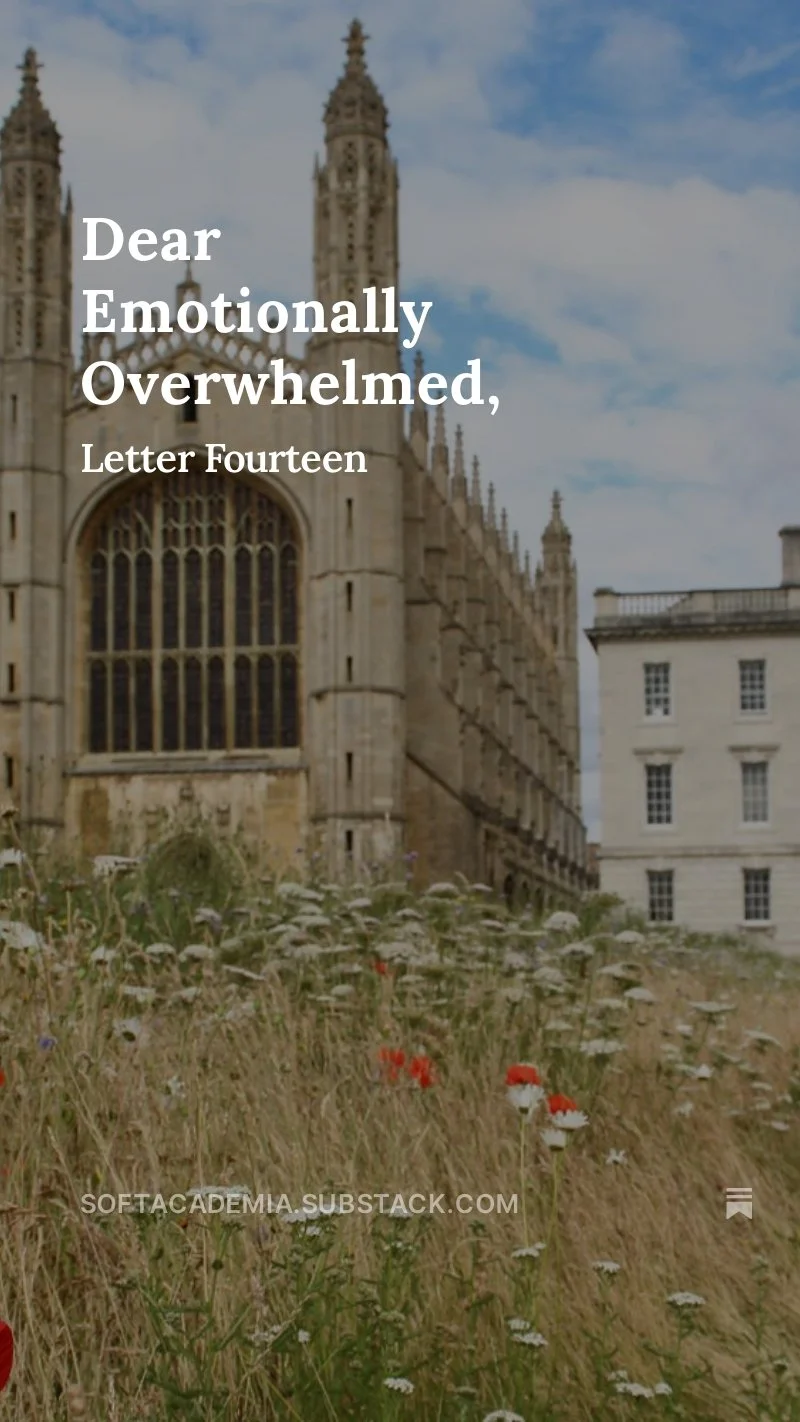Does Working in Academia Suspended People in Adolescence?
Letter Thirty-Eight: Dear Academics in Suspended Adolescence
The life of an academic, whether you are in a liberal arts subject, medicine, or beyond, is rife with rejections, being underpaid, cruel comments disguised as feedback, a manufactured sense of urgency, and an instability for funding, for courses, for tenure, for location.
I can’t say those conditions bring out the best in anyone.
In fact, one could say, those are conditions that activate people’s fight/flight/freeze systems and color the world as less safe and the people around them as more dangerous. And what happens when people don’t feel safe and the world feels dangerous? The answer is certainly not know how to navigate relationships, power, and repair with a sense of maturity, kindness, and accountabilit
How Do I Deal with Constant Criticism?
Letter Thirty-Seven: Dear Criticism Coward
I also would not classify what is being said to you as constructive criticism, the type of feedback that is worth believing is presented to you in good faith as something that can help you improve; that is not what is happening here.
What is being said to you is just criticism; unkind, destructive, and unhelpful.
It makes complete sense to me that you’re not feeling confident in yourself and your abilities after hearing comments like those. Even once is enough to leave a deep impact, let alone these comments being a pattern.
What if My Mental Illness is What Makes Me a Good Academic?
Letter Thirty-Six: Dear What if My Mental Illness is What Makes Me a Great Academic?
I think both you and these artists were resourceful and creative, finding ways to get connection and encouragement from the world around you through your external accomplishments. You through a publication record and them through the showing or purchasing of their art.
Is This Really the Most Free Time I’ll Ever Have?
Letter Thirty-Five: Dear Drowning with No Sign of Land
Because as you mentioned, we’re existing in a broken system. Academia as a system certainly does not meaningfully encouraging rest or free time or sustainable workloads. And systems are not for taking on as individuals, that’s something that requires community and organizing and capacity.
Should I Let My Supervisor Know About My Mental Health Struggles?
Letter Thirty-Two: Dear To Share or Not to Share a Mental Breakdown
Thank you for taking care of yourself and getting the support you need; it matters that you’re alive and here to write this down.
I think what’s most important about the decision to share or not to share is about what would be helpful to you and what your boundaries are.
Because it isn’t the case of you ‘have’ to tell everyone everything or you tell them nothing at all.
There’s lots of choices in between those two things.
How Do I Deal with Embarrassment From Getting Feedback?
Letter Thirty-One: Dear Please Help with Embarrassment
Embarrassment is considered a complex emotion, meaning its root emotion is one of the major five: happy, sad, anger, disgust, and fear (otherwise known as the characters from the first Inside Out).
Which I think allows us to consider something important here: what feelings were also present while you practiced your symposium work.
Is Academia for Extroverts?
Letter Thirty: Dear Is Academia for Extroverts?
Which leads me to say, maybe academia was never set up for extroverts. That it wasn’t designed with folks in mind who feel energized with collaboration, processing aloud, connecting over information and exchange of ideas, or otherwise “peopleing” in their day-to-day activities.
How Do People Keep Going After Rejections in Academic Publishing?
Letter Twenty: Dear Rejected
Academia can, frequently, be a place that people try to characterize as objective and emotionless. I have always been confused how people can celebrate the science of emotions or the science of human behavior, while at the same time trying to frame research & science & academia as a place devoid of emotions or humanity.
It is normal and okay and important that the experience of academic publishing has an emotional impact on you, because you’re a human. A process for navigating this system is something to be developed; be gentle with yourself as you figure it out.
Is Academia Beyond Repair and How Do I Find Grace for Myself in this System?
Letter Fifteen: Dear (an Instagram Questions Installment)
This is a new format for this newsletter this week!
As I was nearing the middle of the week, the inbox for this newsletter was empty (full of all the other Substacks I love to read, but missing a letter to respond to). Rather than skipping a week, I thought I would give my Instagram community an opportunity to put a question on a story box rather than needing to write an entire letter. I chose two this week to answer below.
The DM feature on Substack is another place where you can submit a letter if you prefer that over email.
Can I be kicked out of my lab for not being productive enough or being too stressed or too emotional?
Letter Fourteen: Dear Emotionally Overwhelmed
Here’s something I know to be true, shame thrives in silence. The quieter we are, the more hidden our feelings become, the more isolated we make ourselves, the worse off we are. I am here naming shame for you, as I recognize that you didn’t use that word yourself. Because what I hear in the fear of being a ‘waste of time, money, and energy’ is not being enough, not having a sense of worthiness to be there if you aren’t showing up emotionally in certain ways, of you not being ‘good’ if you aren’t productive and producing.
